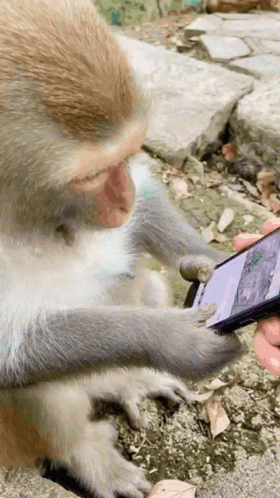Hello Forecasters,
Welcome back to the Inflection Point.
This week, we're doing a pulse check on social media.
TL;DR
- Are kids ok? And if not, is social media really to blame?
- Traditional media is being overshadowed by ‘newsfluencers,’ a trend that increases awareness and the risk of misinformation.
- What do we call ChatGPT explaining compounding interest in RuPaul’s voice? The era of educational entertainment.
Let’s dive in.
Biden says TikTok is a national security risk.
A U.S. ban could take effect as early as January 19th if its Chinese parent company, ByteDance, doesn't divest.
More than a dozen states in the U.S. are suing TikTok.
The platform is accused of violating consumer protection laws by deliberately designing an app that keeps young people hooked– fueling the teen mental health crisis.
New polling suggested that 47% of GenZ wish TikTok didn’t exist but are addicted.
- 23% of users between 18 and 27 use social media for 7 hours or more daily.
- 39% use it between 4 to 6 hours a day.
- 38% are on for 3 hours or less.
TikTok, Snapchat, and Meta have “blood on their hands,” according to Senator Lindsey Graham.
During a U.S. Senate Judiciary Committee hearing in January 2024, the court focused on the harmful effects of social media on children’s mental health– specifically, its role in youth suicides.
Social media’s impact is still a contentious debate.
Between 2007 and 2021, the incidence of suicide among Americans between the ages of ten and twenty-four rose by sixty-two percent.
While the science remains inconclusive on a direct link, the concern over mental health is underscored by chilling reports such as last month’s New Yorker article by Andrew Solomon.
He writes:
- A 2019 study by researchers at Johns Hopkins University reported that spending more than three hours a day online can lead adolescents to internalize problems more, making it harder to cope with depression and anxiety.
- The Centers for Disease Control found that one in three teenage girls considered taking her life in 2021, up from one in five in 2011.
- Fifty-three percent of Americans now believe that social media is predominantly or entirely responsible.
Is using social media inherently beneficial or harmful to young people? The science is inconclusive.
- The American Psychological Association and a community of scientists outside of the U.S. have published research that underscores the absence of a clear link.
- Gina Neff, who heads a technology research center at the University of Cambridge, said, “Just because social media is the easy target doesn’t make it the right target.”
So why are so many people making the connection?
British political theorist David Runciman points to the increased powerlessness that teens feel compared to adults.
“…children’s online interactions aren’t very different from those of adults– the difference lies in young people’s lack of agency.
“..they feel powerless about climate change, war, misery,” he said. “That is a toxic combination: permissionless access to information and relative powerlessness over the topics to which that information pertains.”
Suicide survivors barely mention social media as a factor in their attempts:
Instead, Solomon writes, they point to:
- Impotence
- Climate change
- Purposelessness
- The brutal language of modern politics
- Intolerance for their gender, race, or sexuality
- Bleak financial prospects and diminished social mobility
- An inability to feel that they had caught up, as though their brains were slower than their lives
- Acute loneliness, even among those who appeared not to be lonely
CPG brands should consider how a sense of powerlessness might be affecting their target audiences.
Supporting feelings of agency in teen communications strategies can help shape a sense of well-being and community.
A McKinsey Health Institute survey of 42,220 people in 26 countries found that social media engagement may facilitate mental health support and connection.
But do the pros outweigh the cons?
“Newsfluencers’ are reshaping how young Americans are getting their political news.
In a Pew report analyzing 664 adult TikTok users last month, it found that
“the typical U.S. adult on TikTok" follows no politicians, civil actors, traditional media outlets, or journalists.
For instance, just 0.4 percent of the accounts followed belonged to journalists, pundits, or traditional media outlets.
Instead of following politicians or journalists, 56% of users prefer entertainment-based accounts– sidelining traditional news.
As trust in legacy media wanes, people are looking to content creators who feel trustworthy.
Influencer-driven news sharing could ensure more people are engaged with current events but also heightens the risk of misinformation and bias.
As more people turn to social media for search, the experience of ‘discovery’ becomes a desire for learning.
“75% of users feel educated while using TikTok” – Justin Ownes, Head of TikTok Partnerships.
The new trend report from OKCOOL found that 79% of people surveyed said social media has helped them upskill.
Social media has evolved into a space for both education and misinformation.
CPG brands now face a pivotal challenge: engaging younger audiences while authentically fostering positive digital experiences.
Platforms like TikTok, once seen purely as entertainment hubs, are now shaping opinions, delivering news, and even facilitating learning. This presents both an opportunity and a responsibility.
Brands must be mindful of the broader mental health debate surrounding social media use.
As lawmakers scrutinize platforms for their impact on youth, CPG companies can position themselves as part of the solution by supporting initiatives that empower teens, promote well-being, and create meaningful connections.
Providing content that offers educational value and emotional support can strengthen brand loyalty, especially among younger generations searching for trust and authenticity online.
Ok, that's all we’ve got for now.
Thanks for spending time with us on this week’s Inflection Point.
We’ll see you next time.
